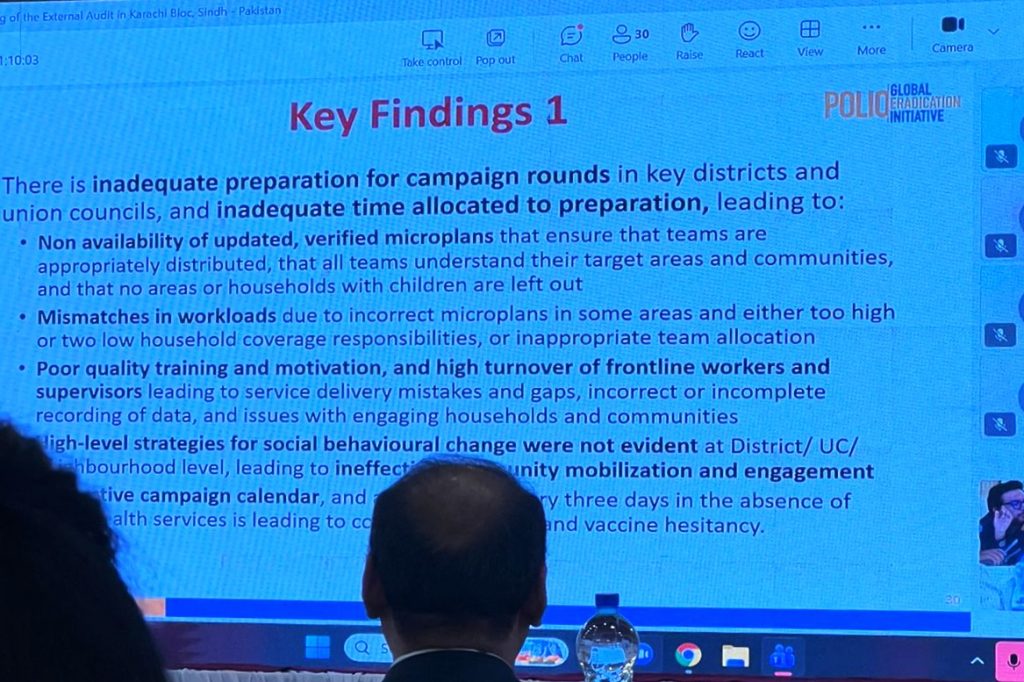
By our correspondent
KARACHI: An external audit of polio eradication activities in Sindh has raised serious concerns over inadequate preparation, weak micro-planning, and gaps in frontline worker training across key districts and union councils.
The findings, presented during a review meeting attended by health officials and partners of the Polio Global Eradication Initiative, reveal that insufficient time is being allocated to campaign preparation, resulting in outdated or incomplete microplans. These lapses, auditors warned, leave some areas and households with children unreached.
The report highlights mismatches in workloads caused by incorrect household estimates and inappropriate distribution of vaccination teams. High turnover among frontline workers, coupled with poor-quality training, has led to errors in data recording and weak engagement with communities.
Some reliable internal sources revealed in anonymity that most the operational failure were caused by the former Coordinator of Emergency Operation Center (EOC) Sindh, who was recently transferred due to poor performance. The official also claimed that the Coordinator had categorically denied to implement SoPs set by the NEOC or partner organizations, forcing the staff to follow his own devised rules.
It is to understand that the newly-posted EOC Sindh Coordinator Shehryar Gul Memon has been assigned a tough task as his predecessor had almost spoiled the entire polio program as the external auditor proved. Auditors also noted an absence of effective social and behavioral-change strategies at the district and neighborhood level—an essential component for addressing misinformation, mobilizing caregivers, and overcoming resistance during vaccination drives.
Officials at the meeting acknowledged the weaknesses and stressed the need for strengthened planning, improved workforce capacity, and better coordination across tiers of the program to ensure Pakistan stays on track toward polio eradication.


